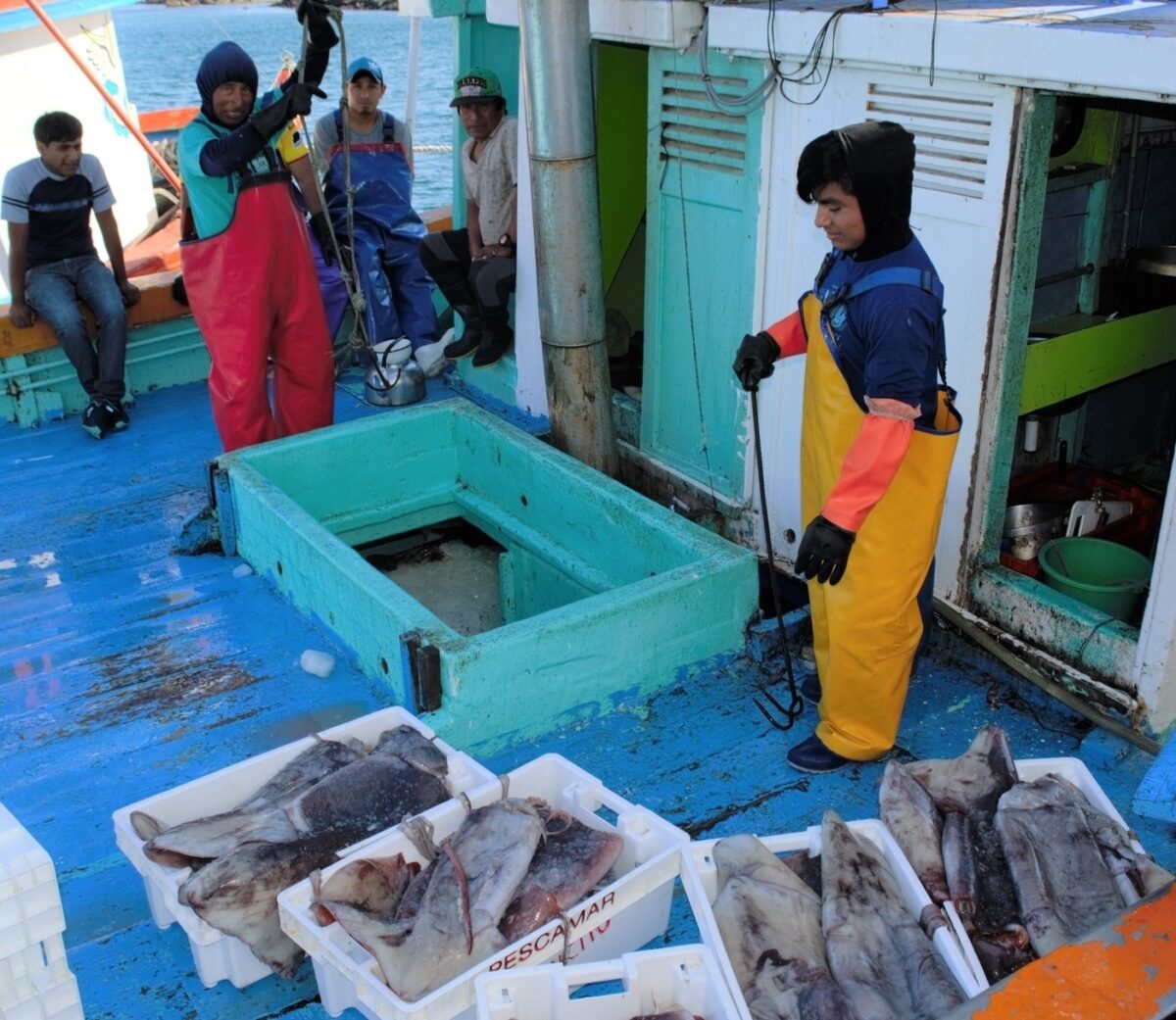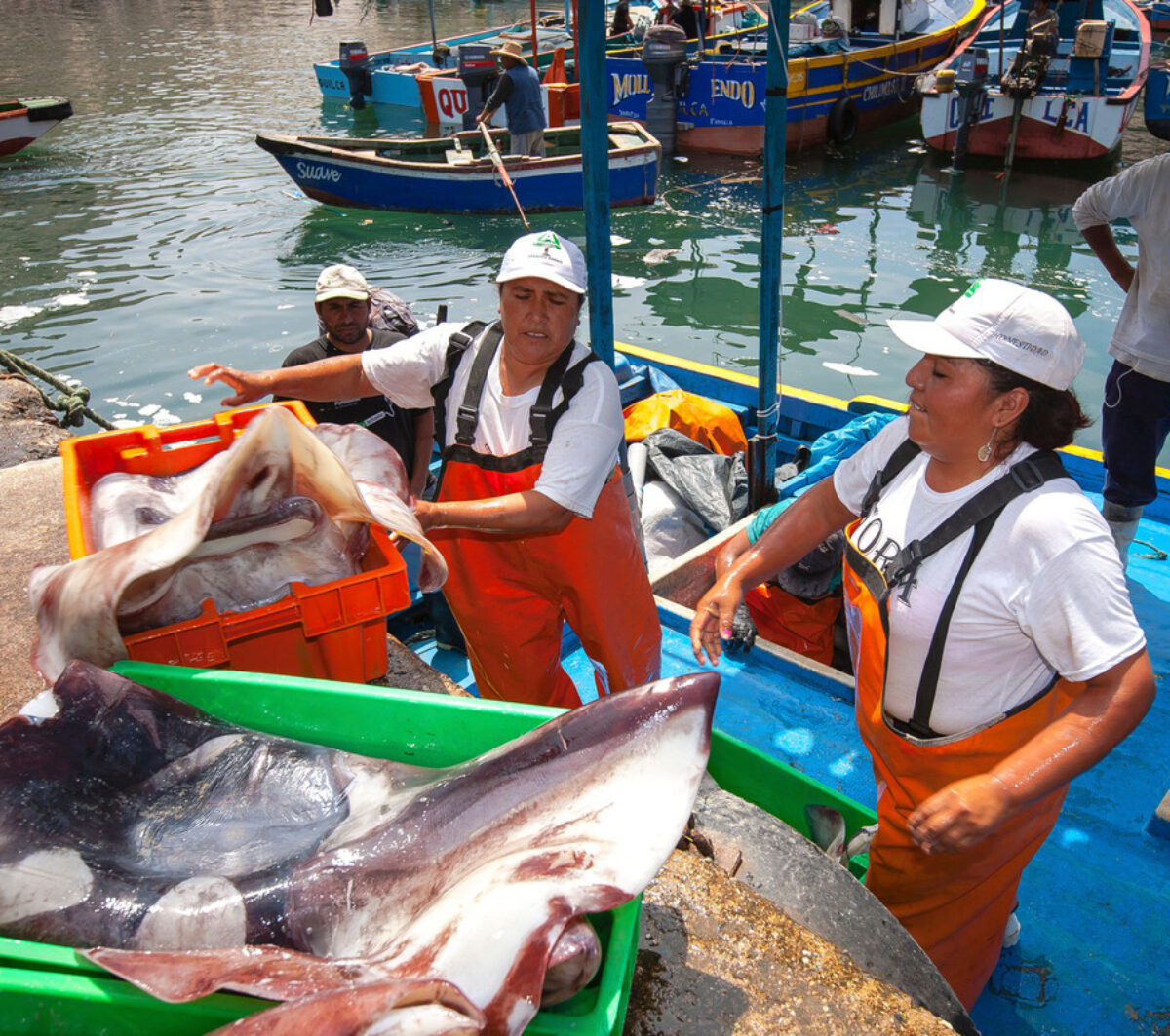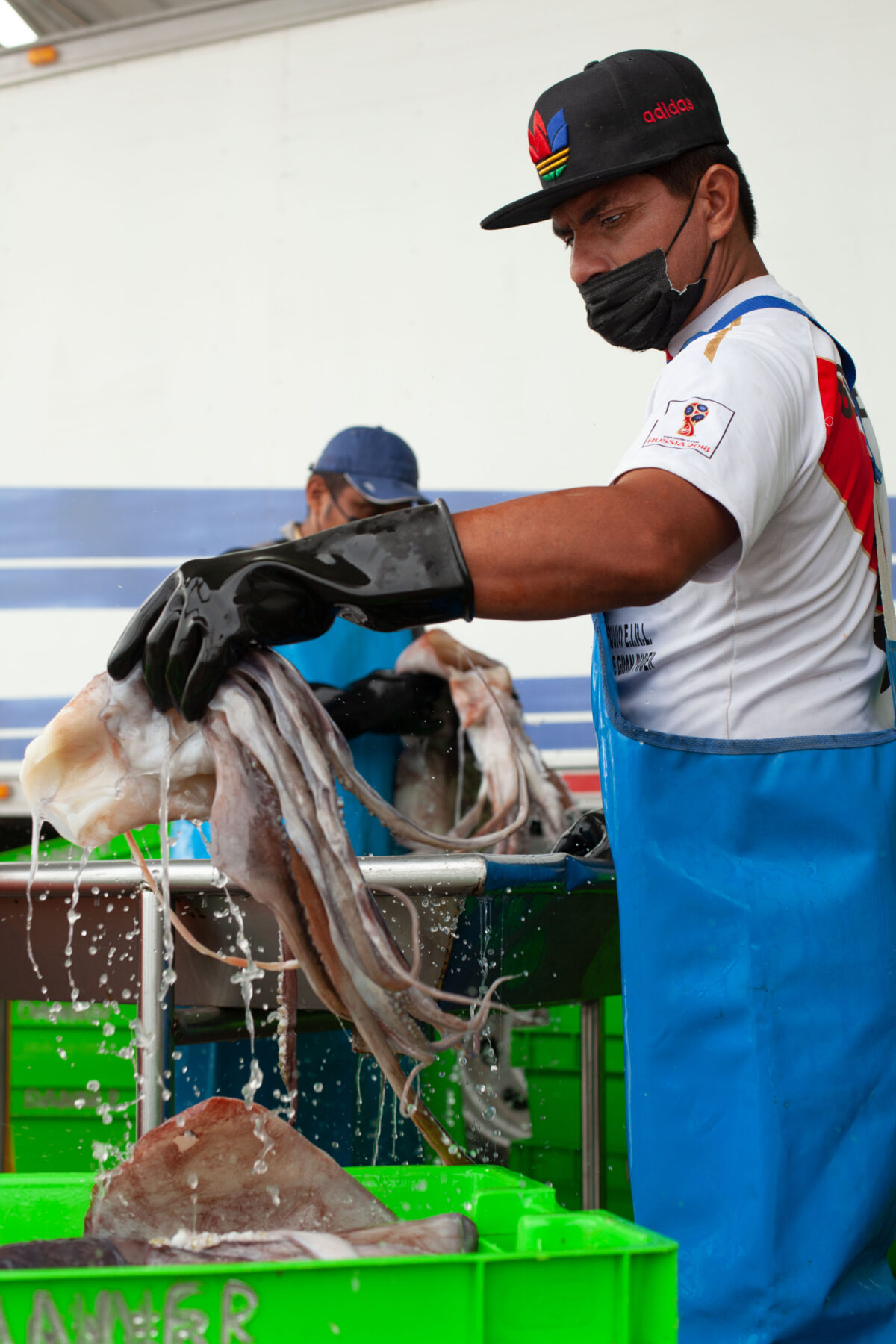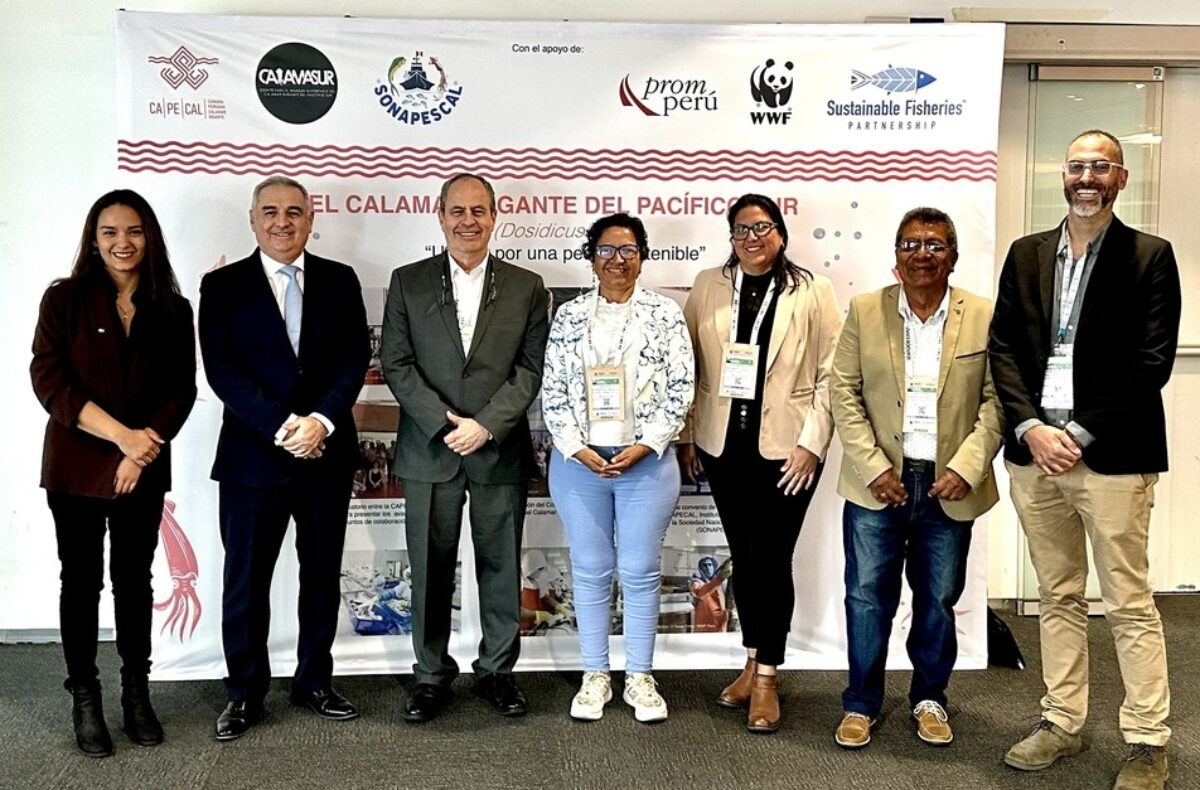Impact stories
Facilitating change in the jumbo flying squid supply chain
Reversing the decline of the jumbo flying squid fishery requires collaborative efforts between governments and all stakeholders in the supply chain.
Southern Pacific jumbo flying squid (JFS) is primarily harvested by artisanal fishers in Peru, alongside a growing distant-water fleet operating in the high seas. Highly sought after in the global seafood market, JFS has been overexploited for years, threatening the health of the fishery and the livelihoods of fishers and their communities.
But in the last decade, a remarkable coalition of local squid producers and processors, along with exporters, NGOs, industry, and regulators, have collaborated to drive continuous improvements in the fishery and give a voice to local stakeholders. SFP is proud to have played a key role in aligning global buyers, local fishers, domestic industry stakeholders, and national authorities to promote sustainability in the fishery.
A timeline of progress on squid sustainability
2014-2018: SFP mobilizes global squid buyers and helps launch the Global Squid Supply Chain Roundtable (SR), bringing together dozens of companies committed to promoting sustainability in the squid sector.
2018: Working together, the Global Squid SR and SFP promote the launch of a JFS fishery improvement project (FIP) that unites Peruvian processors and government stakeholders to drive improvements in the fishery.
2018: SFP supports the establishment of the Committee for the Sustainable Management of the Southern Pacific Jumbo Flying Squid (CALAMASUR), a coalition of squid producers, processors, and exporters from Chile, Mexico, Peru, and Ecuador. CALAMASUR begins advocating for regional sustainability at the South Pacific Regional Fisheries Management Organization (SPRFMO), becoming the representative voice of responsible industry actors in the region.


2020: The Peruvian Chamber of Giant Squid (CAPECAL) is formed in Peru, representing over 60% of Peruvian JFS exporters and strengthening the industry’s coordination and influence at the national level. CAPECAL assumes leadership of the FIP, consolidating the efforts of the private sector to drive continuous improvements in the sustainability of the fishery.
2020: Thanks to the sustained advocacy efforts of CALAMASUR, the SPRFMO adopts its first conservation measure for the squid fishery, marking a major milestone in regional fisheries management. Among the provisions is a requirement that Peruvian artisanal vessels be formally registered so that they are covered by law and considered in decision making.
2021: With support from SFP and Sociedad peruana de Derecho Ambiental (SPDA), the Peruvian Ministry of Production (PRODUCE) launches pescaformal.pe, providing training material and expert advice to boat owners in the process of obtaining licenses and registration.
2022: The National Society of Artisanal Fishing (SONAPESCAL) is founded in Peru, representing 28% of the Peruvian fishing vessels that capture squid and mahi-mahi. With SFP’s support, SONAPESCAL strengthens its organizational and advocacy capacity, enabling it to actively participate in fisheries management decision-making processes.
2022-2024: With the support of local industry and pescaformal.pe, 85% of the more than 3,400 artisanal squid vessels complete the formalization process. The Peruvian government allows registration by cooperatives, removing a barrier for more than 900 artisanal vessels in major fisher organizations to be able to operate legally in Peruvian waters.
2024: After advocacy by CALAMASUR, major seafood companies, industry associations, and the Global Squid SR, the SPRFMO endorses measures to address labor and human rights abuses and improve monitoring, control, and surveillance in the JFS fishery.
2024: CAPECAL and SONAPESCAL jointly submit a new regulatory framework for JFS to the Peruvian government, after more than 15 years without updates. Industry-led initiatives to strengthen science, compliance, and governance also gain momentum.
2025: After years of advocacy and collaboration, the Peruvian government adopts a new JFS Regulation (ROP) that will improve monitoring and traceability, safeguard Peru’s jurisdictional waters from industrial expansion, and align fisheries management with international sustainability standards by incorporating ecosystem-based and precautionary approaches.


Representatives of WWF Peru, CAPECAL, CALAMASUR, SONAPESCAL, and SFP at an event for JFS fishery stakeholders during Seafood Expo Global 2024.
“Jumbo flying squid fishing is the livelihood of thousands of Peruvian artisanal fishers, who have demonstrated that policy change is possible when actors with diverse interests come together to build and approve a proposal that benefits the entire JFS food system.”
– Pedro Ferreiro, SFP Fisheries Governance and Livelihoods Director
Organizing for change
A 2023 study by SFP, published in Ocean and Coastal Management, analyzed the formation of CALAMASUR and its engagement with the South Pacific Regional Fisheries Management Organization. The authors found that strong organization and leadership by artisanal fishers and processors enabled their effective participation in fisheries management at the regional level, resulting in more sustainable, science-based, and equitable fisheries management.
